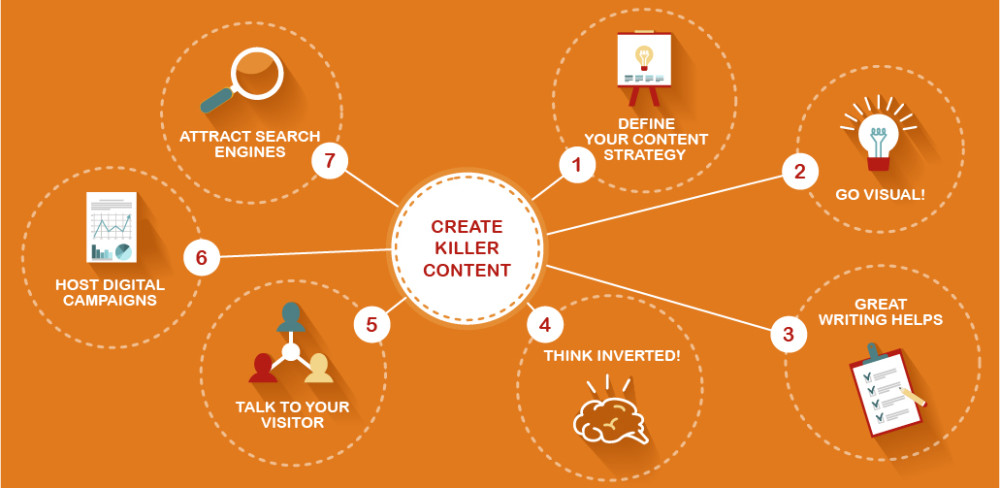Content Marketing Definition: What is Content Marketing?
In today's digital age, where attention spans are fleeting and competition is fierce, businesses need more than just a website and a catchy slogan to thrive. They need a strategic approach to connect with their target audience, build relationships, and ultimately drive sales. This is where content marketing steps in.
Content marketing is a powerful digital marketing strategy that focuses on creating and distributing high-quality, valuable, and consistent content to attract and engage a clearly defined target audience. This content can take various forms, from informative blog posts and engaging videos to insightful infographics and downloadable white papers. The ultimate goal of content marketing is not just to sell a product or service directly, but to establish your brand as a thought leader in your industry, educate your audience, and nurture leads throughout the customer journey.
Here's a breakdown of the key elements of content marketing:
- Content Creation:
This involves crafting compelling and informative content that resonates with your target audience. Effective content is well-researched, visually appealing, and addresses the specific needs and pain points of your ideal customers. - Content Distribution:
Once you've created valuable content, it needs to reach the right people. This involves utilizing various distribution channels like your website, social media platforms, email marketing, and even paid advertising to ensure your content gains visibility. - Content Engagement:
Content marketing is a two-way street. It's not just about pushing out content; it's about fostering interaction and building relationships with your audience. Encourage engagement by responding to comments, participating in discussions, and running contests or giveaways. - Content Measurement:
Tracking the performance of your content marketing efforts is crucial. Use analytics tools to monitor metrics like website traffic, lead generation, brand mentions, and social media engagement. Analyze this data to understand what content resonates with your audience and identify areas for improvement.
A successful content marketing strategy is an ongoing process that requires commitment and continuous refinement. By consistently creating valuable content, building relationships with your audience, and adapting your strategy based on data, content marketing can deliver significant benefits for your business.
Why is Content Marketing Important?
Content marketing offers a multitude of advantages for businesses of all sizes. Here's how a well-crafted content marketing strategy can propel your business forward:
Increase Online Visibility:
High-quality content optimized for search engines can improve your website's ranking in search results pages (SERPs). This leads to greater organic traffic, making your business more visible to potential customers searching for products or services related to your industry.Generate More Leads:
Informative and engaging content attracts potential customers interested in what you have to offer. By providing valuable resources and establishing yourself as an industry expert, you can capture leads and nurture them through the sales funnel.Boost Brand Loyalty:
Content marketing fosters trust and builds stronger relationships with your audience. Regularly providing valuable content positions you as a reliable source of information and demonstrates your commitment to customer education. This fosters brand loyalty and encourages customers to choose you over competitors.Improve Brand Authority:
By creating well-researched and informative content, you establish yourself as a thought leader in your industry. This enhances your brand's credibility and positions you as an expert resource for potential customers.
Content marketing is a cost-effective and long-term strategy compared to traditional advertising methods. By consistently delivering valuable content, you nurture leads, build brand loyalty, and ultimately drive sales success.
How Content Marketing Works
Effective content marketing caters to the different stages of the customer journey, the process a potential customer goes through before making a purchase. Here's how content can be tailored to each stage:
Awareness Stage:
At this stage, potential customers are just beginning to realize they have a need or problem. Your content marketing efforts here should focus on creating informative blog posts, infographics, or videos that raise awareness about the challenges your target audience faces.Consideration Stage:
Once potential customers are aware of their need, they start researching solutions. This is where in-depth content like case studies, white papers, or product comparisons becomes crucial. Provide valuable resources that educate your audience about your products or services and how they address their specific needs.Closing Stage:
Now, potential customers are actively evaluating different options. Create targeted content like product demos, customer testimonials, or free trials to showcase the value proposition of your offerings and convince them to choose your brand over the competition.
By understanding the customer journey and tailoring your content to each stage, you can effectively convert potential customers into loyal patrons.


